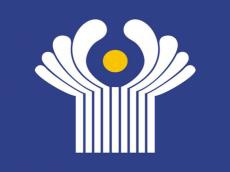|
|
TODAY.AZ / Politics
CIS states express concern over situation in Nagorno-Karabakh
04 April 2016 [13:27] - TODAY.AZ

By Nazrin Gadimova
CIS member states are concerned over the aggravation of situation on the contact line of Armenian and Azerbaijani troops.
Sergey Lebedev, CIS Executive Secretary made the remark while talking to media on April 3.
A number of officials representing CIS member states have already appealed to Azerbaijani and Armenian counterparts urging them to take immediate steps to cease hostilities and resume the search of ways for a peaceful resolution of the conflict, according to Lebedev.
“The Commonwealth of Independent States, friends and partners of Azerbaijan and Armenia sincerely hope that both sides have the will and prudence to stop the bloodshed and find a the possibility to immediately resume peace talks for the benefit of peoples of both countries,” Lebedev said.
Meanwhile, speaker of the State Duma, the lower house of Russia’s parliament, Sergey Naryshkinhas voiced belief that the way to the settlement of the Nagorno-Karabakh conflict is through dialogue and compromise.
"The way to the restoration of peace is always through dialogue, compromise, and both sides should constantly seek this peace and compromise," the official said.
Another member state of the CIS, Belarus, stands for peaceful resolution of the conflict in accordance with the requirements of relevant resolutions of the UNSC, the OSCE and the norms and principles of international law, according to the statement issued by country’s foreign ministry.
"Belarus is deeply concerned about the resumption of active hostilities with the use of heavy weapons in the Nagorno-Karabakh region,” the ministry stressed.
Azerbaijan’s western neighbor Georgia, in turn, believes that the country can play the role of mediator in the long-lasting conflict.
Chief of the Georgian Armed Forces General Staff, Major General Vakhtang Kapanadze told local media that Georgia is one of the countries that have good relations with both parties to the conflict.
Kapanadze believes that the conflict is a painful process for the entire region.
The Armenian armed forces continue to intensively shell the settlements and civilians along the line of contact using heavy artillery, and continuing provocations
On the night of April 2, all the frontier positions of Azerbaijan were subjected to heavy fire from large-caliber weapons, mortars, grenade launchers and guns.
Azerbaijani settlements near the contact line, densely populated by civilians, were fired at as well. Civilians were killed and wounded as a result of the Armenian attacks.
The Azerbaijani armed forces immediately launched counter attacks to prevent the activation of the Armenian military units and to protect civilian population. Six Armenian tanks, 15 gun mounts and reinforced engineering structures have been destroyed and more than 100 Armenian servicemen were wounded and killed during the shootouts.
Twelve servicemen of the Azerbaijani armed forces heroically died, one Mi-24 helicopter was shot down and one tank damaged by a mine.
Despite Azerbaijan's decision on unilateral suspension of the counter-attacks and response measures in the territories occupied by Armenia, the Armenian Armed Forces resumed shelling of Azerbaijani positions along the line of contact on the night of April 4, further deteriorating the situation on the contact line.
URL: http://www.today.az/news/politics/149335.html
 Print version
Print version
Connect with us. Get latest news and updates.
See Also
- 04 September 2025 [10:21]
Azerbaijan, Peru hold first round of political consultations in Lima - 03 September 2025 [19:45]
China’s V-Day Parade for regional unity and global security - 03 September 2025 [15:24]
Armenian authorities approve highway weight station along Zangazur Corridor - 03 September 2025 [13:32]
Azerbaijan and Ukraine discuss steps to deepen strategic partnership - 03 September 2025 [13:11]
Azerbaijani Defense Minister visits Vietnam naval command headquarters - 03 September 2025 [12:30]
The last vestige of the Minsk group - 03 September 2025 [12:00]
Armenia ceases to be invisible - thanks to Azerbaijan - 03 September 2025 [11:42]
Criminal trial of former US Embassy employee begins in Baku - 03 September 2025 [10:07]
President Ilham Aliyev, First Lady Mehriban Aliyeva attend reception in honor of heads of state and spouses observing parade in Beijing - 02 September 2025 [15:00]
5th round of Brazil-Azerbaijan political consultations held
Most Popular
 India has failed Armenia and the "Shanghai Spirit"
India has failed Armenia and the "Shanghai Spirit"
 Armenia ceases to be invisible - thanks to Azerbaijan
Armenia ceases to be invisible - thanks to Azerbaijan
 5th round of Brazil-Azerbaijan political consultations held
5th round of Brazil-Azerbaijan political consultations held
 Azerbaijan, Brazil hold inaugural meeting of Working Group on Trade and Investment
Azerbaijan, Brazil hold inaugural meeting of Working Group on Trade and Investment
 Special event 'From Garabagh along Silk Road ' held at Sea Breeze
Special event 'From Garabagh along Silk Road ' held at Sea Breeze
 Lithuania renews debate over four-day workweek
Lithuania renews debate over four-day workweek
 Baku predict fate of Minsk Group back in 2020
Baku predict fate of Minsk Group back in 2020
